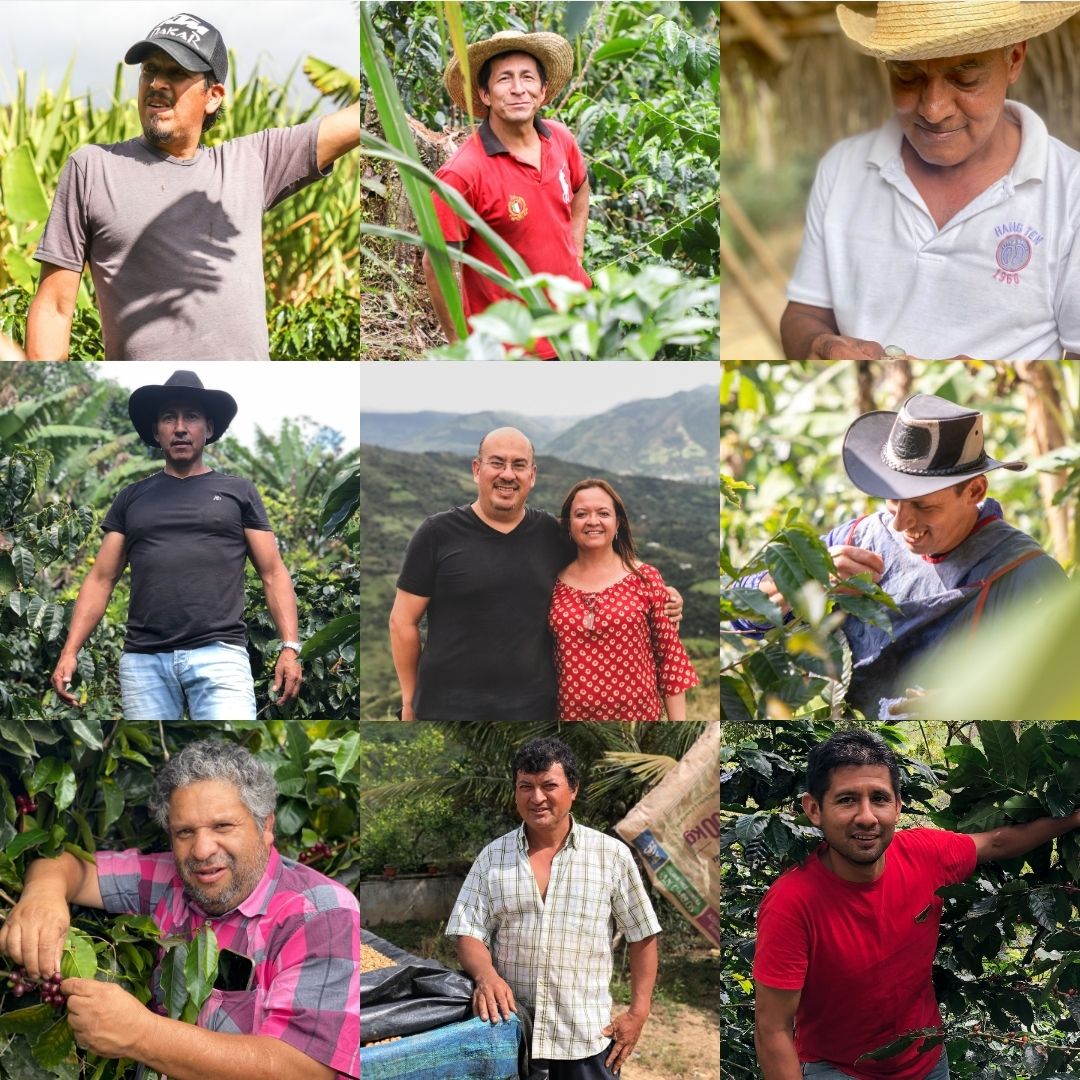
A Commitment to Transparent Trade
We want you, the customer, to know everything there is to know about Z Beans.
We want transparency.
We are committed to providing not only sustainable solutions for our farmers, but a sustainable income for them, their families, and their communities.
It is no secret that our mission at Z Beans is to create sustainable solutions for hardworking Ecuadorian farmers. From donating organic fertilizers, drying beds, harvesting equipment, and seeds, to developing Coffee Cherry Tea to help monetize waste, and from investing in education by sending farmers to barista, roasting, and cue grading classes, to assisting farmers with Buenas Practicas Agricolas (BPA) applications, we have shown our commitment to sustainability in many ways. We know our farmers personally and share in their determination to make a better life for themselves, their families, and their communities.
In order to prove our dedication to our farmers and our commitment to sustainability, we want you, the customer, to know everything there is to know about Z Beans.
We want transparency.
We are committed to providing not only sustainable solutions for our farmers, but a sustainable income for them, their families, and their communities.
Here at Z Beans, we practice truly fair, direct, and transparent trade. We pay all of our farmers directly at rates above the set Fairtrade International Prices for Coffee. Our farmers even send us their costs to produce 1lb of coffee, so that we can offer assistance to them that will benefit not only their plantations but their individual small businesses as a whole.
The current fair price of coffee is set at $1.40/lb, fifteen cents higher than the average paid price of coffee per pound for those who aren’t part of the fair trade movement.
The fair price for premium coffee adds twenty cents to the fair trade price to make $1.60/lb. If the coffee is organic, this price jumps a whopping ten cents more to be $1.70/lb. Coffee, then, that is both premium and organic is $1.90/lb.
What most people don’t realize is that this fair price, albeit set by the Fair Trade International Standards Committee to meet researched standards of living, is not always split one way. Many farmers are a part of what is called a co-op. And in a co-op, farmers work together to pool the fruits of their labor to sell to buyers as a group. In these instances, the fair price does not change; however, that $1.40 per pound may now be split amongst fourteen different farmers bringing what each farmer takes home to his family to only ten cents per pound. To put this into perspective, a smaller co-op of five farmers selling 1,000 pounds of coffee in total at the set $1.40 per pound makes $1,400 total. Each farmer, then, only takes home a fifth of that, or $280.
At Z Beans, the lowest price a farmer receives per pound of coffee is $2.00. This is still 43% higher than the fair market price for coffee, 25% higher than the fair price for premium coffee, 18% higher than the fair price for organic coffee, and 5% higher than the fair price for premium organic coffee. On average, our farmers receive $2.30/lb, making our average prices anywhere from 21% to 64% higher than fair prices. And we pay them all individually, meaning our farmers never have to split that price with others.
Moreover, our farmers do not set their own prices. Rather, we do—through our objective pricing scale, whereby Arturo, Marie, and Fabricio blindly grade samples of green coffee beans prior to our yearly purchase. Through this method, we are able to price the green coffees based on quality—ranging from $2.00 - $2.80 per pound. Through this process we not only set a fair price floor, but we reward the farmers objectively.
Our highest priced coffee, from Alfredo Ochoa, is $2.80/lb, making our price 147% to 200% higher than fair prices. On average, it costs our farmers in Ecuador $1.10 - $1.30 per pound to produce their coffees. With our average price paid of $2.30 per pound—our farmers with costs of $1.20 per pound, have a gross profit margin of 48%.
To add even another layer of perspective, with an average annual cost of living for a family of four in Ecuador of $27,000, the average annual income for a farmer in Ecuador is only $5,220. Purchasing only 500lbs of green coffee from Alfredo Ochoa, he receives 15% of this average income in just one small purchase from Z Beans. In purchasing 14,000lbs from Milton Rivadeneira, he receives 62% of the average annual cost of living for a family of four, 322% of the average annual income for a farmer in Ecuador. At the highest fair trade price of $1.90/lb, Milton would still make 187% more than the average farmer; however, he would miss the average cost of living for a family of four by $17,200, or 64%.
From $1.40 to $2.30, these seemingly small price differences per pound can actually equate to hundreds or even thousands of dollars for each farmer every year—especially when considering the cost and effort involved up front.
Z Beans ensures year-round that our farmers have everything they need to be successful, not just with coffee but with their other crops as well. We make an effort to be a part of their everyday lives, and we encourage them to do what is best for them and their families—even when Z Beans is not the answer.
While we are certainly not the only coffee importers in the Southeast United States, or even Middle Georgia, we are one of the few that focuses on the direct impact our purchases have on our farmers. We challenge all other coffee companies to have the same focus so that we not only continue to improve the quality of coffee in America, but also the quality of life of the farmers we so heavily depend on.

Farmer |
Price/Pound |
| Milton Rivadeneira | $2.45 |
| Alfredo Ochoa | $2.80 |
| Ramiro Pauta | $2.20-$2.60 |
| Diego Jaya | $2.00-$2.30 |
| Jose Capa | $2.25 |
| Napoleon Elizalde | $2.25 |
| William Martillo | $2.05-$2.15 |
| Beronica Benalcazar | $2.40 |
| Juan Carlos Acevedo | $2.30 |
| Roberto Rengel | $2.20 |


0 comentarios